Leader teachers, unlimited challenge
Keywords:
Leader, social representations, attributes to the leadership.Abstract
This reflection article aims to present several considerations about the social representations that some teachers manifest about their teaching leadership, and relate some theories about it. To pursue this aim, we used a qualitative approach based on the action research, which invites the teachers to think about the practice carried out at the pedagogical activity. The teachers receive an explanation about this type of leadership. The 7 attributes essential to the leadership itself, observed under a personal perspective, and other leader-typologies that are embedded at the social representations of the teachers. These must be implemented at the praxis áulica, with the purpose of contributing to the leadership training for today and the future. When applying to the selected teaching community the instruments of data collection for the project: interviews, case studies, and semi-structured surveys; the findings are types of leadership characteristics that indeed some teachers have more than others, at their communities. They express those attributes in front of their students, and they take advantage on them to obtain some changes over these people who surround them every day. It was possible to conclude that the current possibilities of pedagogical success, find its fundamental cause on the teacher capabilities to generate substantial positive changes over the person, and in the institution where he or she works. Likewise, to reach the group and individual goals of the students he or she is in charge of, the capability to be in somebody else shoes, trying to educate the people so they change the reality. Also, they stimulate the cooperation, the creativity and solidarity among its members; the usage of didactical resources of massive communication and digital media to analyze them with their students so they guide them to be autonomous. Alongside, the capacity to encourage the best values of humans and project them to the future by considering basically their life project, using the required tools available and updated at the didactics.Author Biographies
Azucena Del Carmen Robles López, Institución Educativa de Sora - Boyacá
Especialista Gerencia Educacional
Docente Institución Educativa de Sora
Leidy Constanza Daza Benítez
Especialista Gerencia Educacional
Universidad Pedagógica y Tecnológica de Colombia – UPTC
References
BERNAR, B. (1985). Liderazgo y rendimiento más allá de Expectativas.
BOLÍVAR, A. (2000). El liderazgo compartido. III congreso nacional de centros educativos.
COVEY, S. R. (1993). El liderazgo centrado en principios. Madrid: Paidós Ibérica.
FLORES, R. (2005). Liderazgo y función docente. Revista de Orientación Educacional. No. 21 y 22. Uplaced. Valparaíso.
GARDNER, H. (1998). Las inteligencias múltiples: La teoría en la práctica. Barcelona: PaidósIbérica.
GOLEMAN, D. (1999). Estilos de liderazgo.
LANDOLFI, H. (2010). La esencia del liderazgo. Claves para el ejercicio genuino y auténtico del liderazgo. Buenos Aires: Editorial Dunken.
MAXWELL C. J. (2011). Las 21 cualidades indispensables de un líder.
MARTÍ, J. (1980). Discurso en Steek Hall el 21 de enero de 1880.
MOSCOVICI, S. (comp.) (1986). Psicología Social II. Pensamiento y vida social. Psicología social y problemas sociales. Barcelona: Ediciones Paidós.
PUIG, A. (2012). Madera de líder. Madrid: Empresa Activa
URIBE B. M. (2006). Liderazgo docente en las aulas. Educación y Pedagogía para el siglo XXI. Unesco.
BOLÍVAR, A. (2000). El liderazgo compartido. III congreso nacional de centros educativos.
COVEY, S. R. (1993). El liderazgo centrado en principios. Madrid: Paidós Ibérica.
FLORES, R. (2005). Liderazgo y función docente. Revista de Orientación Educacional. No. 21 y 22. Uplaced. Valparaíso.
GARDNER, H. (1998). Las inteligencias múltiples: La teoría en la práctica. Barcelona: PaidósIbérica.
GOLEMAN, D. (1999). Estilos de liderazgo.
LANDOLFI, H. (2010). La esencia del liderazgo. Claves para el ejercicio genuino y auténtico del liderazgo. Buenos Aires: Editorial Dunken.
MAXWELL C. J. (2011). Las 21 cualidades indispensables de un líder.
MARTÍ, J. (1980). Discurso en Steek Hall el 21 de enero de 1880.
MOSCOVICI, S. (comp.) (1986). Psicología Social II. Pensamiento y vida social. Psicología social y problemas sociales. Barcelona: Ediciones Paidós.
PUIG, A. (2012). Madera de líder. Madrid: Empresa Activa
URIBE B. M. (2006). Liderazgo docente en las aulas. Educación y Pedagogía para el siglo XXI. Unesco.
How to Cite
Robles López, A. D. C., & Daza Benítez, L. C. (2015). Leader teachers, unlimited challenge. Cultura científica, (13), 88–97. Retrieved from https://revista.jdc.edu.co/index.php/Cult_cient/article/view/142
Downloads
Download data is not yet available.
Downloads
Published
2015-10-26
Issue
Section
Reflection article




